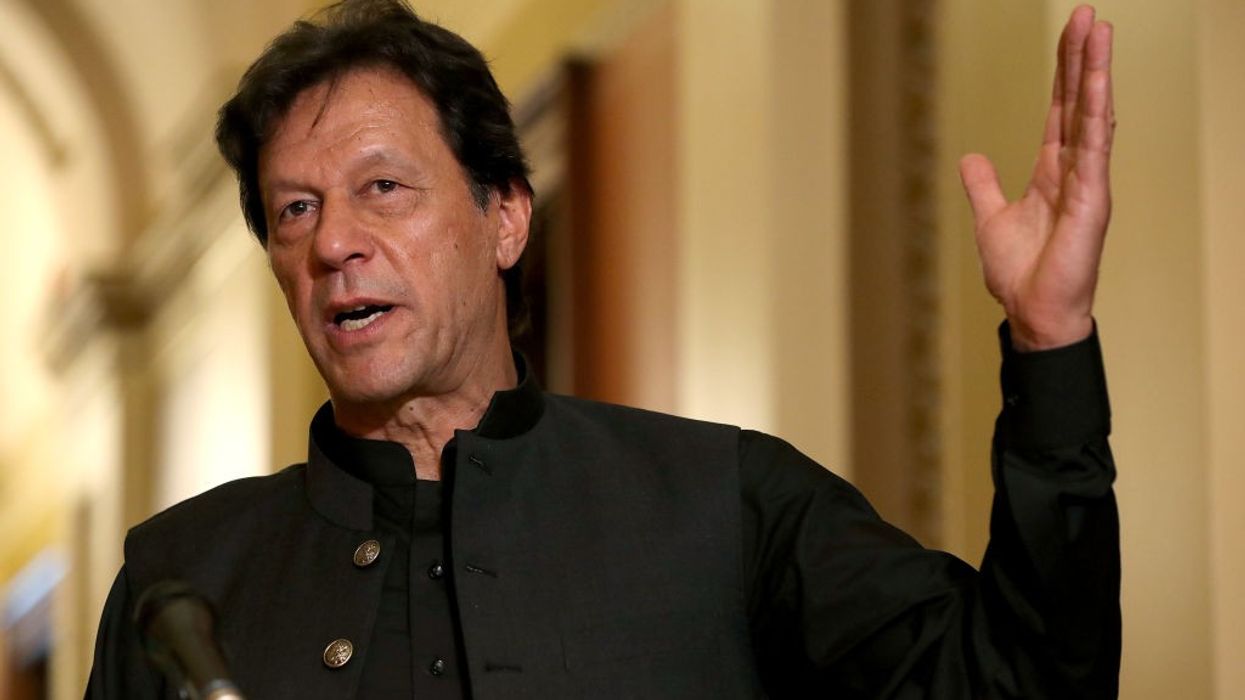Former Pakistani Prime Minister Imran Khan said on Wednesday (17) that police had surrounded his house and that he expected to be rearrested soon, after the government warned him to hand over supporters who it blamed for attacks on the army.
Khan was arrested by the army on May 9 on graft allegations, which he denies, triggering a wave of violence that has deepened political instability in the south Asian nation of 220 million.
Pakistan has also been facing its worst ever economic crisis, with a long delay in securing critical IMF funding.
The country's Supreme Court ordered Khan's release on bail last Friday (13).
But on Wednesday, the government accused him of sheltering aides and supporters wanted over the attacks following his arrest, and warned he had 24 hours to hand them over or face a police operation.
Khan, 70, a former captain of Pakistan's cricket team, said his re-arrest was imminent. Hours earlier, Islamabad's High Court had granted him a bail extension until May 31, his lawyer Faisal Chaudhry said.
"Probably my last tweet before my next arrest," Khan tweeted on Wednesday evening, adding that police had surrounded his house in the eastern city of Lahore.
In a live video statement, he said his opponents were out to trigger a fight between him and the army.
"I'm afraid that this will bring a big backlash that will cause huge loss to our country," he said.
"... If someone thinks that this strategy can win a ban on my party, it is not going to happen."
He demanded a judicial commission headed by the chief justice to probe the violence.
Punjab province's information minister Amir Mir said intelligence and law enforcement agencies had identified that some 30 to 40 people accused of attacking military installations were hiding at Khan's home.
"We're giving an ultimatum that these terrorists should be turned over to the police, or else there will be action," Mir told a press conference.
He said Khan had 24 hours to surrender the suspects, and that a police operation would be launched if he did not comply.
Khan's aide, Iftikhar Durrani,denied the former prime minister was sheltering people suspected of involvement in the violence.
Khan, who has been rallying his supporters to demand a snap election since he was ousted in a parliamentary vote of confidence in April 2022, called on authorities to come to his house with arrest warrants rather than storming it.
Following Khan's arrest, thousands of supporters attacked and set on fire scores of government and public buildings, including the army's headquarters. More than 3,000 people are already in custody over the violence.
Federal information minister Marriyum Aurangzeb described the attacks on army installations as "sedition", saying those involved in them would be tried in military courts.
The military had already announced that those who attacked its installations would be tried under army laws, calling the May 9 attacks "pre-planned" and ordered by leaders of Khan's party, which he and his party deny.
The Human Rights Commission of Pakistan (HRCP), an independent civil rights group, said on Tuesday (16) it opposed the use of military laws to try civilians, saying it risked denying their right to due process.
(Reuters)
Imran Khan says police surround his house, fears re-arrest
In a live video statement, he said his opponents were out to trigger a fight between him and the army




